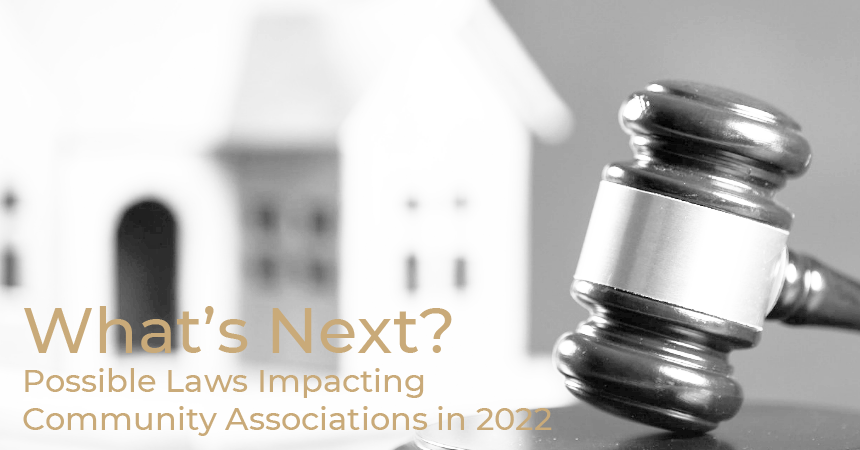By Chandler W. Travis, Esq.
While the Arizona Legislature wrapped up its 2021 legislative session at the end of June and only passed six bills into law that impact community associations, a review of those bills that did not pass provides insight into what may lay ahead in the 2022 legislative session.
First and foremost, the Legislature will consider more bills related to short-term rentals and vacation rentals. Community associations in Arizona continue to grapple with issues surrounding the use of residences and condominium units for vacation or short-term rentals. These issues include violations for noise and parking, especially from so-called “party houses.” In the 2021 legislative session, SB1379 sought to place occupancy restrictions on the number of adults in a short-term rental. This bill would have also required the owner of the rental property to maintain liability insurance of at least $500,000 on a rental property or to advertise and use a hosting platform, such as Airbnb or VRBO, which provides at least $500,000 liability insurance or greater on the rental property. While this bill failed in 2021, it is highly likely that a similar bill will be proposed in 2022.
Likewise, HB2481 also sought to address short-term rentals by requiring the owner of the rental property to license or register it with the appropriate county or municipality and restrict occupancy of the rental property to either the occupancy limit of the county or municipality where the rental property is located or to two adults per bedroom with an additional two adults allowed. This bill did not pass. Of note, the Community Association Institute (“CAI”) supported this bill, and it was a nationally proposed bill to help associations address short-term rentals.
Besides bills addressing short-term vacation rentals, the 2021 Legislature also heard bills intending to reduce the percentage necessary to amend declarations. Currently, A.R.S. §33-1227(A) of the Condominium Act provides in part that a condominium declaration “may be amended only by a vote of the unit owners to which at least sixty-seven percent of the votes in the association are allocated, or any larger majority of the declaration specifies.” HB2619 would have amended this statute to decrease the percentage of unit owners voting to amend the declaration to 50%. For planned communities, HB2619 would have allowed the members to amend the declaration by an affirmative vote or written consent of a majority of the owners or eligible voters. This would have replaced the current amendment provision for planned communities, which allows a declaration to be amended by the number of owners or eligible votes as set forth in the declaration.
A similar bill was introduced in the Senate, known as SB1644, which also allowed a condominium declaration to be amended by a vote of the unit owners to which more than 50% of the votes are allocated. SB1644 also would have allowed owners in a planned community to amend the declaration by the affirmative vote or written consent of a majority of the owners or eligible voters; instead of pursuant to the amendment section in the Association’s declaration. While HB619 and SB1644 both failed, it is highly likely that similar bills will be introduced in 2022.
Beyond short-term rentals and the percentage required to amend the declaration, the Arizona Legislature may consider bills that further define what flags owners may display within a community association, what constitutes a political sign, and whether an association must make its common areas accessible to assemblies, including political speeches. One thing is for certain: associations will continue to be subject to new laws each legislative session.
The information provided herein is for reference purposes only, is general in nature, and is not intended as legal advice. For specific questions or legal issues regarding your association, please contact us at 480-219-3633.

